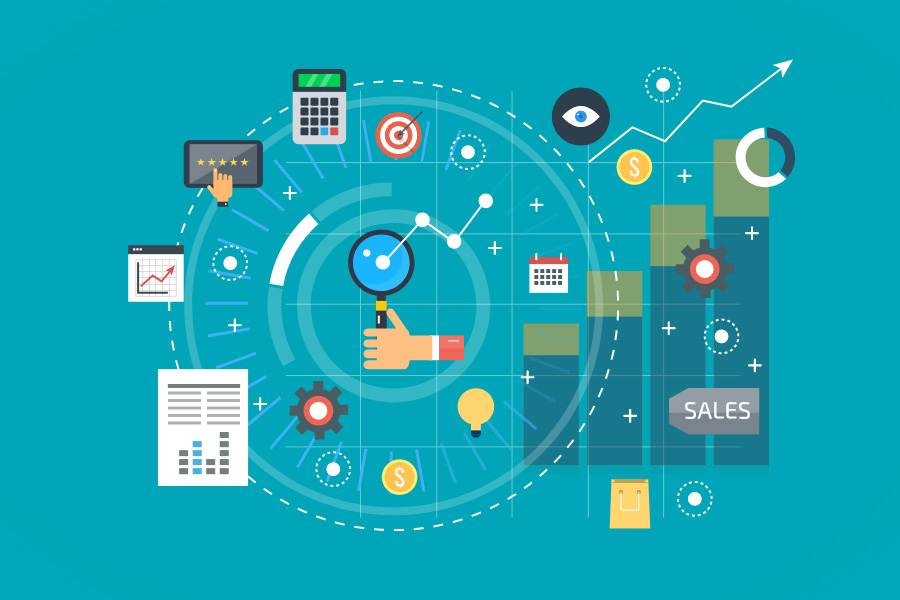
To be successful in business, you have to be smart. Being smart is all about knowing the what, when, where, why, and how of the market and steering your business accordingly.
Business intelligence (BI) helps you find answers to all of these questions with advanced computing systems that analyze data and develop the right solutions. From customer relationship management to predicting future trends, business intelligence systems have a lot to offer to a growing business.
Here’s a brief guide on what business intelligence encompasses and how you can use it.
What is Business Intelligence?
Business intelligence can be defined as a combination of technology and strategy that involves data collection, analysis, and interpretation that’ll help drive informed business decisions.
It involves a set of processes, system architectures, and technology that’ll help you deal with raw data and get meaningful interpretations that can be applied to improving your business operations.
The difference between Business Intelligence and Business Analytics
There is a general misconception that business intelligence can be used interchangeably with business analytics despite both the terms being starkly different. While business analytics refers to gaining insights from available data, business intelligence includes a broader spectrum of operations that involves data collection, analysis, and its application in various business areas.
Business intelligence lets you get actionable information at all stages and apply data insights to every aspect of your business in order to make it more efficient.
You are allowed to make informed decisions rather than decisions based on assumptions and thereby have solid casual links to every improvement or failure you encounter. This helps you run a successful business in the long term and makes sure your learnings are well applied for further profitable actions.
What are the benefits of Business Intelligence?
A BI solution ensures all your business decisions are steered towards success with minimal error. You can make use of BI solutions throughout your business operations from marketing, sales, and finance. Here are some applications of business intelligence:
- Optimizing marketing campaigns and measuring the results
- Gaining greater visibility into your operational expenses, cash flow, and gross margins
- Deriving insights on employee engagement, HR processes, and recruitment
- Measuring and tracking supplier performance
- Forecasting market trends, revenues, and transactions
- Optimizing customer relationship management, call center operations, and depot staffing levels
- Getting a comprehensive view of your entire enterprise
- Finding new revenue opportunities and patterns
Typically, BI solutions can be used in the following ways to optimize any business process:
- Establish the key metrics and performance indicators (KPI) based on historical data
- Identify and determine the benchmarks and standards
- Identify the upcoming market trends and possible business problems in the future
- Help with data visualizations and reporting
- Descriptive analytics
- Querying
- Data preparation and data mining
The best part about business intelligence is that it's not a luxury only big enterprises can use. Every small and medium business stands to gain enormous benefits by making use of BI solutions.
Business Intelligence best practices
By following certain practices, you can ensure you get the best benefits of business intelligence. Here are some to-dos and don’ts that’ll help you implement a successful BI strategy for your business.
Organizational buy-in
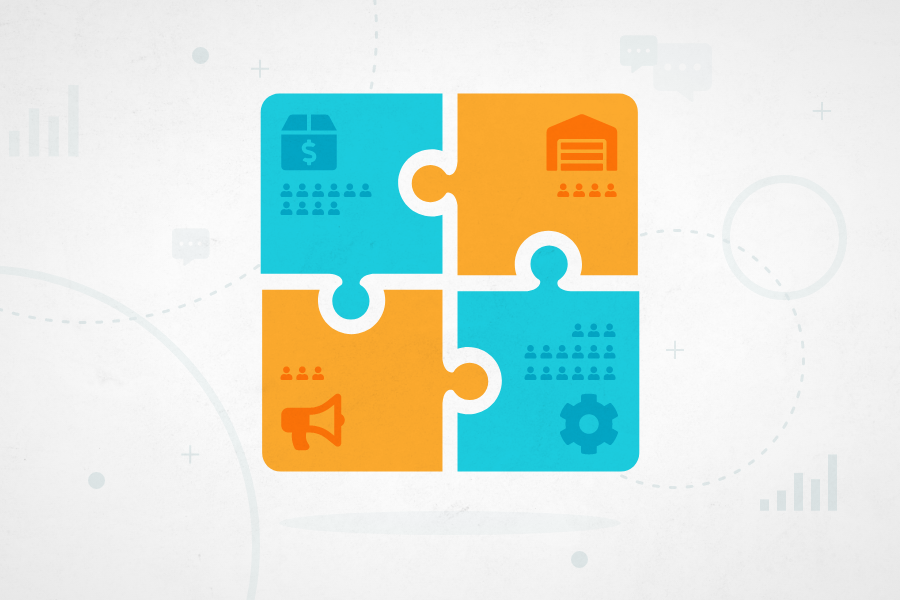
Include all your departments from sales to marketing, logistics, inventory, and management into your BI solutions. Try to incorporate all aspects of your business so you can gain a complete view of your data. Ensure you get the necessary feedback and buy-in from all your teams before implementing the BI solution for successful adoption.
Plan your BI implementation
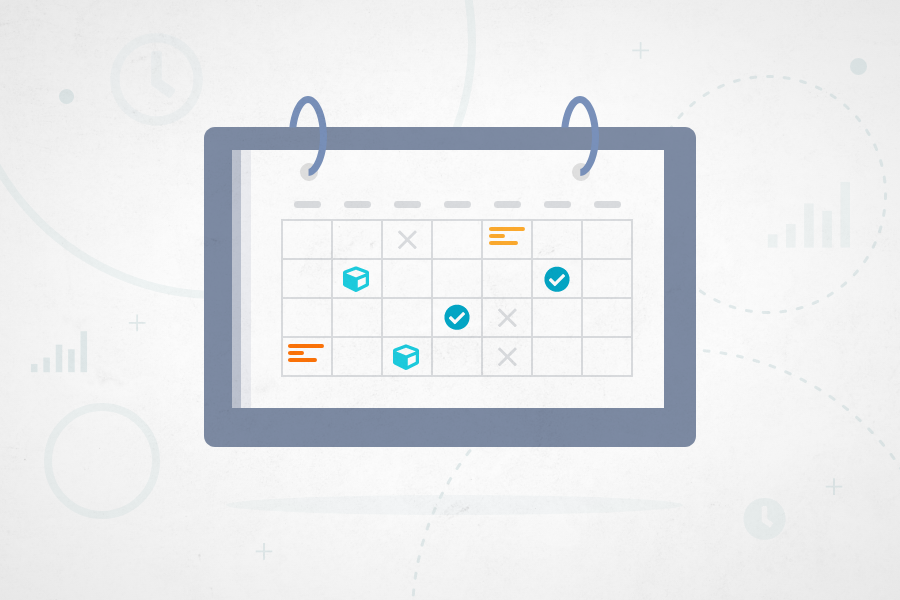
Don’t go diving into a BI system without a proper plan, strategy, and clearly defined goals. Identify your most critical business needs, both short and long-term goals, and the benchmarks you seek to achieve. Having clear objectives and a roadmap will be a great aid in the success of your BI implementation.
Here are some more steps you can adopt to plan your BI implementation efficiently:
- Collect requirements from each of your departments
- Set clear targets with time-bound goals
- Identify the key metrics and KPIs that help you monitor your progress
Simplify BI implementation
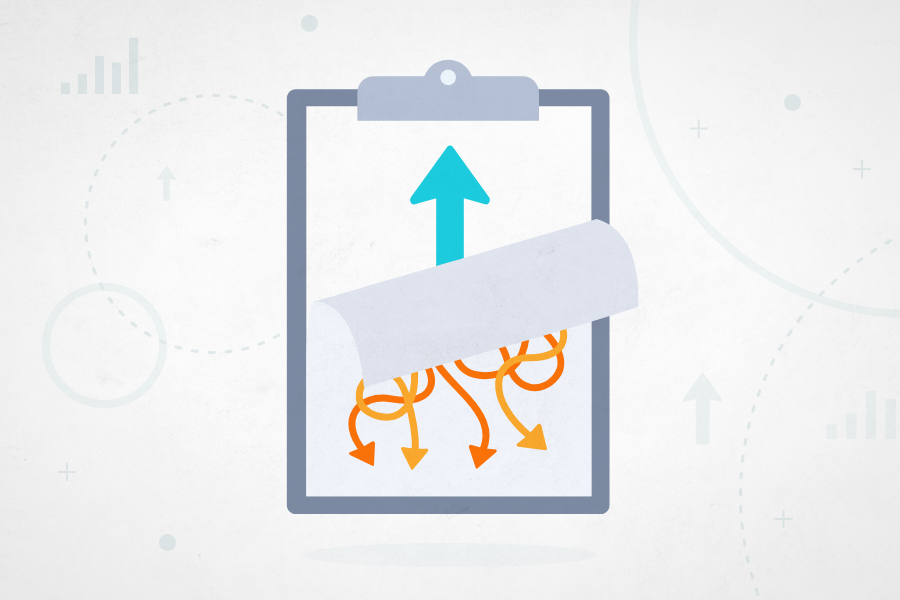
Begin implementation by integrating with existing similar solutions. If your organization is already using any business analytics software and data visualization systems, you should start integrating these systems with your BI implementation for a smoother transition.
You can start small and use a phased implementation while gaining feedback at each stage to refine your BI solution.
You can also use agile methodologies to roll out to help with such adaptive implementation plans and continuous improvement.
Promote a data culture within the organization
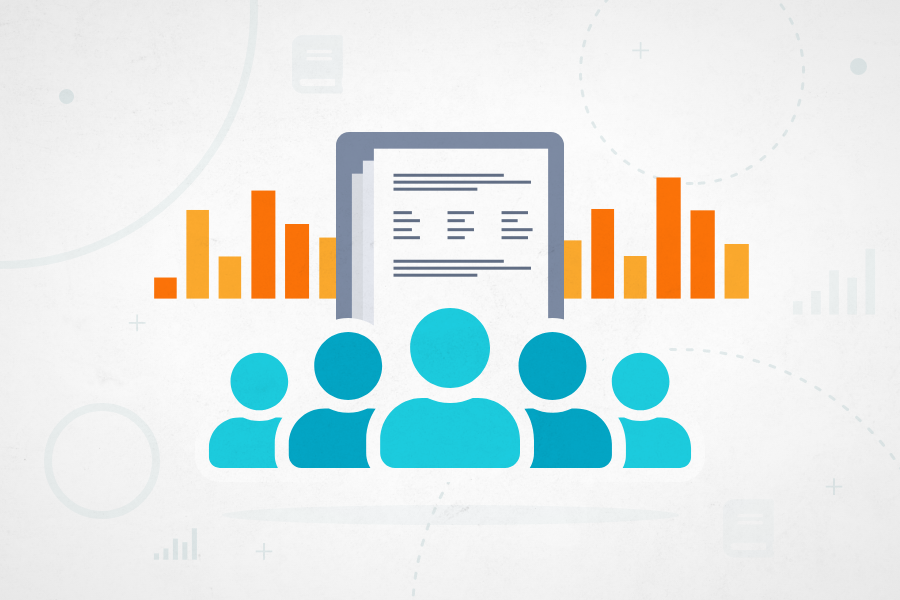
No BI solution can be successful without the support of your teams and employees. You must ensure your employees understand the importance of data and the benefits of using data analytics to enhance business operations. This can disrupt your existing work culture and might induce some form of resistance. Be sure to take time to train and educate your teams to nurture a data culture.
You should also put in a solid governance plan for regulating data operations and handling across the organization.
Implement the security roles, access levels, and authentication mechanisms to regulate the organization's safe use of data.
Appoint a BI Ambassador
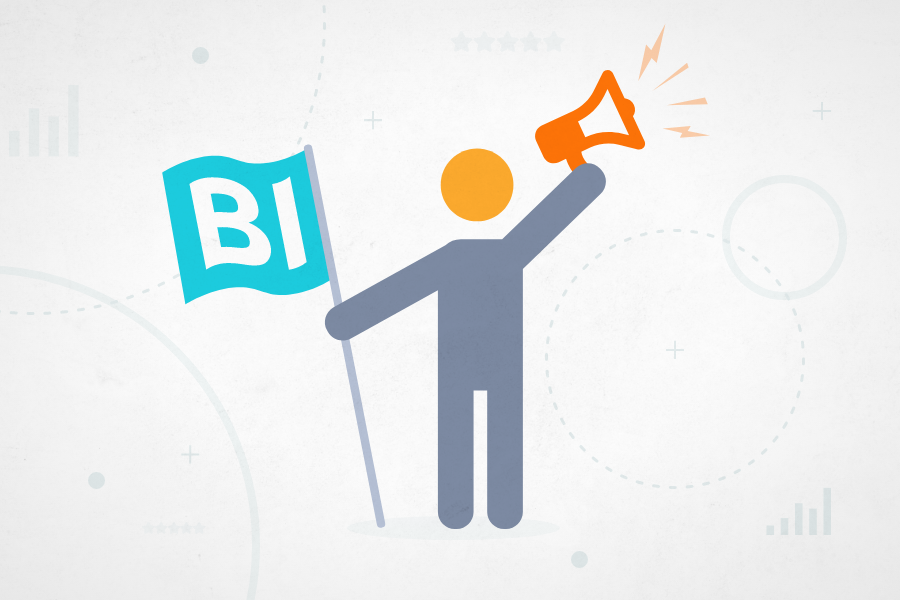
Having a responsible role that takes ownership of the BI implementation will go a long way in helping you successfully adopt the new system. This person can act as the point of contact for everything relevant to business intelligence and can help facilitate a smoother implementation. Dedicated personnel should have the necessary knowledge and technical skills to provide guidance and training to every department.
Read on: Business Intelligence Assessment
Key stages of Business Intelligence implementation
Now that you are convinced of the benefits of business intelligence, here’s how you can implement it:
- Collect raw data from your databases. Your data could be spread across various teams, applications, and heterogeneous systems. Consolidating data from multiple sources is the first step towards preparing it for use with a BI solution
- Your collected data will be pre-processed and transformed into a data warehouse
- The BI system can now be used to extract information from the data warehouse with relevant queries, ad hoc reports, and any specific data analysis request
Steps For Effective BI Planning
Here are few steps that’ll help you plan your BI implementation with ease:
- Assess the current tools and analytical applications you use
- Include your business heads, stakeholders, and management leaders in the planning of the implementation
- Identify the key performance indicators and limit them to the most critical that are required to measure the progress and performance of your BI solution
- Evaluate your needs and goals against the cost of BI implementation
- Identify the tools and solutions you need to implement as part of the integration
- Make use of a visualization tool for better data inference and decision making
- Plan a phased implementation strategy with clear goals for each stage
Choosing The Best Business Intelligence Tools
BI tools simplify complex processes and help you achieve the best results you seek. They can be highly useful to businesses running on a tight budget.
With BI tools, you can boost productivity, improve visibility in your business operations, fix accountability, and streamline all your business processes.
Here are some of the most popular BI tools that you can check out:
- Microsoft Power BI
- SAP business intelligence
- MicroStrategy
- Datapine
- SAS Business Intelligence
- QlikSense
- Zoho analytics
- Sisense
- Looker
- Clear analytics
- Tableau
- Oracle BI
- Domo
- IBM Cognos Analytics
Things to Consider While Choosing The Best BI Tool
- Data storage options
- Data warehouses
- Data marts
- The ETL software used (Extract, transform and load)
- Data mining capabilities
- Data analytics features such as predictive modeling, descriptive modeling, natural language processing
- Reporting features like online analytical processing (OLAP), data visualization, unified dashboards, alerts, notifications, and more
If you’re still concerned about BI implementation, don’t worry you’re not alone. Many companies struggle to find the best solution, come up with a plan and execute it. That’s why they choose to outsource their implementation. It’s always a better idea to count on years of experience than to learn by mistake.
Let us know if we can help. Rare Crew’s skilled team can guide you through the whole process of BI implementation so you can focus on your company.
